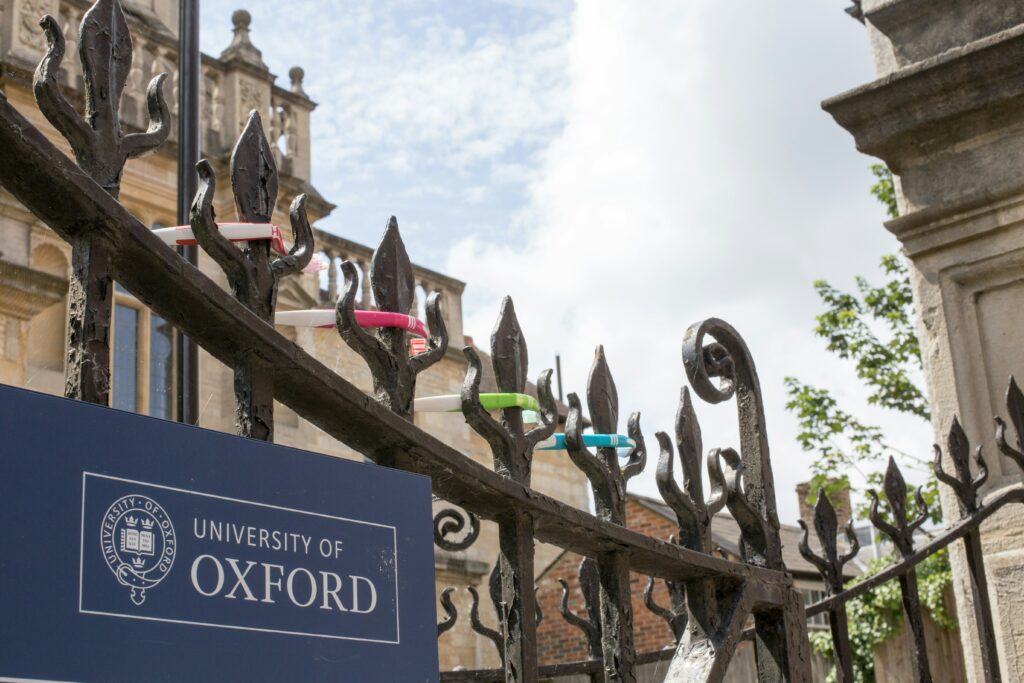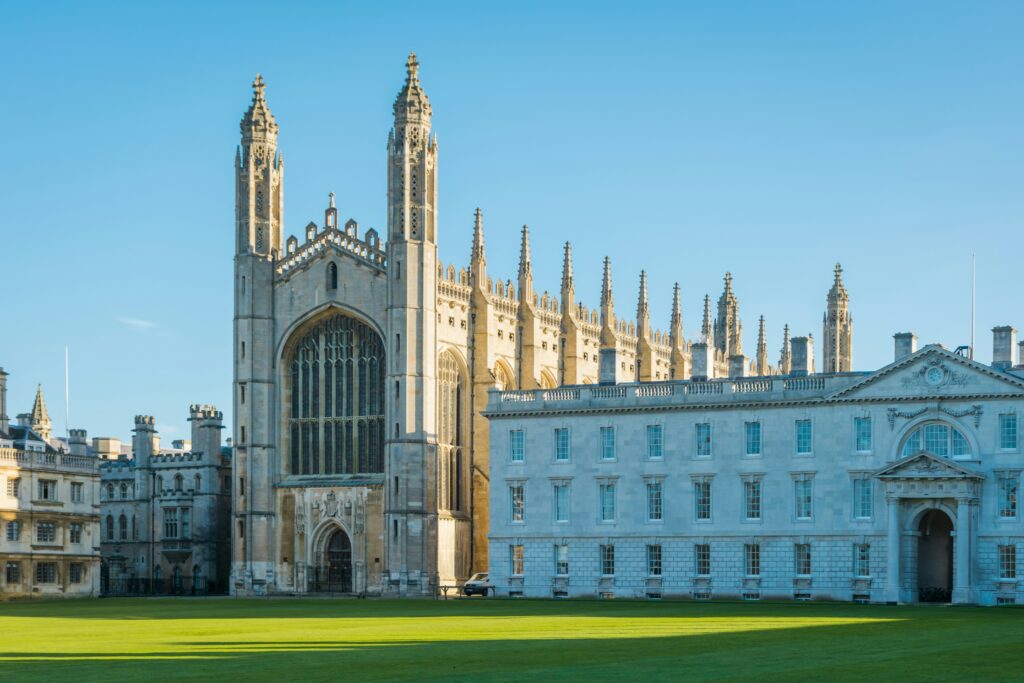Choose European Medical Schools
Choosing the right European medical schools is a pivotal step towards realizing your aspirations in the field of healthcare. With a myriad of options available, it’s crucial to embark on this journey with a clear understanding of what each institution offers and how it aligns with your goals. From accreditation and curriculum to clinical opportunities and location, several factors demand consideration to ensure a well-rounded educational experience. This guide serves as your compass, navigating through the key considerations essential for making an informed decision as you embark on your medical education journey in Europe.
Beyond the academic aspects, delving into the cultural and logistical elements of each prospective European medical school enriches your decision-making process. Consider the socio-cultural landscape of the city or region where the school is situated, as it will shape your day-to-day life outside the classroom. Additionally, ponder the practicalities such as cost of living, language requirements, and the availability of support networks. Balancing these factors ensures not only a fulfilling academic experience but also a harmonious integration into your new environment, setting the stage for a successful medical career.
Accreditation and Recognition

Accreditation by relevant medical authorities is paramount when selecting a European medical school due to several compelling reasons. Firstly, it serves as a hallmark of quality assurance, ensuring that the institution meets rigorous standards set forth by recognized accrediting bodies. Medical accreditation boards evaluate various aspects of a school, including its curriculum, faculty qualifications, clinical facilities, and educational resources. By choosing an accredited medical school, students can trust that they are receiving a comprehensive and high-quality education that meets or exceeds industry standards.
Secondly, accreditation plays a crucial role in facilitating international recognition of medical degrees. Medical professionals often seek opportunities for further education, training, or employment in different countries. Attending an accredited medical school enhances the likelihood of your degree being recognized and accepted globally, thereby expanding your career prospects beyond national borders. Whether pursuing postgraduate studies, seeking licensure in another country, or applying for medical residency programs abroad, accreditation lends credibility to your academic credentials and fosters mobility within the global healthcare community.
Moreover, accreditation promotes ongoing improvement and innovation within medical education. Accrediting bodies provide feedback and recommendations for areas of enhancement based on their evaluations, prompting schools to continually strive for excellence. This process of self-assessment and external review fosters a culture of accountability and continuous improvement, ultimately benefiting the students by ensuring they receive the most relevant and up-to-date medical training available. Additionally, accreditation encourages schools to stay abreast of advancements in medical research, technology, and best practices, equipping graduates with the skills and knowledge needed to excel in an ever-evolving healthcare landscape.
Language of Instruction

The language requirements for studying medicine in Europe are a crucial consideration for prospective students, given the continent’s linguistic diversity and the varying language policies of medical schools. Many European medical schools offer programs taught entirely in English, making them accessible to international students from diverse linguistic backgrounds. Opting for an English-taught program eliminates the barrier of language proficiency in the local language, allowing students to focus solely on their medical studies. This is particularly advantageous for students who may not be fluent in the language of the country where the school is located.
However, it’s essential to recognize that some European countries may have language proficiency requirements for medical practice or patient interaction. Even in English-taught programs, students may be encouraged or required to learn the local language to better communicate with patients during clinical placements or residency programs. Therefore, while English proficiency may suffice for classroom instruction, proficiency in the local language can be beneficial for clinical practice and integration into the healthcare system of the host country.
Moreover, for students considering medical schools in non-English-speaking countries, language proficiency in the respective language is typically a prerequisite for admission. Some schools may require evidence of language proficiency through standardized tests such as the Test of English as a Foreign Language (TOEFL) or the International English Language Testing System (IELTS). Additionally, proficiency exams in the local language may be necessary, depending on the language of instruction. Meeting these language requirements ensures that students can effectively engage in both academic studies and clinical practice, laying a solid foundation for their future careers as healthcare professionals.
Curriculum and Teaching Methods

At the core of most medical curricula is a comprehensive foundation in basic sciences such as anatomy, physiology, biochemistry, and pathology, providing students with a solid understanding of the human body and its functions. However, variations arise in the delivery and sequencing of these foundational courses, as well as the integration of clinical experiences throughout the curriculum.
Some European medical schools follow a traditional curriculum structure, characterized by a discipline-based approach where students progress through preclinical studies before transitioning to clinical rotations. This structure typically involves two distinct phases: preclinical years focused on classroom-based learning and laboratory work, followed by clinical years involving hands-on patient care in hospital settings. This traditional model allows students to build a strong theoretical foundation before immersing themselves in clinical practice.
In contrast, other medical schools adopt an integrated curriculum model, which emphasizes the interconnectedness of basic science and clinical practice from the outset. In an integrated curriculum, students learn core scientific principles alongside clinical applications, with an emphasis on problem-solving and critical thinking skills. This approach aims to foster a more holistic understanding of medicine and better prepare students for the complexities of patient care. Integrated curricula often incorporate small group discussions, case-based learning, and early clinical exposure to bridge the gap between theory and practice.
Additionally, some European medical schools offer specialized tracks or elective modules within their curriculum to accommodate students’ interests and career goals. These may include research opportunities, global health initiatives, or interdisciplinary coursework in areas such as public health, ethics, or medical humanities. By providing flexibility and customization options, schools can cater to the diverse interests and aspirations of their student body, enriching the educational experience and fostering a well-rounded approach to medical training.
Understanding the differences enables prospective students to identify programs that align with their learning preferences, career objectives, and values, ensuring a fulfilling and enriching medical education experience.
Clinical Experience Opportunities
Evaluating the clinical exposure offered by each medical school is pivotal in choosing the right institution to pursue your medical education. Clinical experience is where theoretical knowledge meets practical application, shaping future physicians’ skills, confidence, and readiness for patient care. Key factors to consider include hospital affiliations, diversity of clinical settings, and opportunities for hands-on experience.
First and foremost, examine the hospital affiliations of each medical school. Affiliated hospitals serve as training grounds where students observe and actively participate in patient care under the guidance of experienced healthcare professionals. Assess the reputation and quality of these affiliated hospitals, considering factors such as patient volume, complexity of cases, and availability of specialized services. Robust partnerships with renowned medical centers enhance the breadth and depth of clinical exposure, providing students with diverse learning opportunities across various medical specialties.
Furthermore, consider the extent of hands-on experience offered throughout the curriculum. Hands-on experience encompasses clinical rotations, clerkships, electives, and practical skills training sessions. Look for programs that prioritize early clinical exposure, allowing students to interact with patients and healthcare teams from the onset of their medical training. A well-structured clinical curriculum should offer progressive levels of responsibility, gradually transitioning students from observers to active participants in patient care under supervision.
Additionally, assess the diversity of clinical settings available to students. Beyond traditional hospital-based rotations, evaluate opportunities for community-based care, primary care clinics, specialty centers, and rural or underserved healthcare settings. Exposure to diverse clinical environments exposes students to a wide spectrum of medical conditions, patient populations, and healthcare delivery models, fostering adaptability, cultural competence, and a comprehensive understanding of healthcare disparities.
Lastly, consider the support systems in place to facilitate clinical learning experiences. This includes mentorship programs, clinical skills laboratories, simulation centers, and dedicated faculty members who provide guidance, feedback, and mentorship throughout the clinical training journey. Access to resources and support networks enhances the educational experience, ensuring that students derive maximum benefit from their clinical exposure and develop into competent, compassionate, and well-rounded healthcare professionals. Evaluating these aspects of clinical exposure enables prospective students to make informed decisions and select medical schools that offer robust, enriching, and transformative clinical learning experiences tailored to their educational and professional goals.
Faculty and Research Opportunities

The faculty members of a medical school serve as mentors, educators, and role models for aspiring physicians, shaping their learning experiences and career trajectories. Evaluating faculty credentials, teaching methodologies, and engagement in scholarly activities provides insights into the caliber of instruction and support available to students.
Begin by examining the qualifications and experiences of the faculty members. Look for educators who possess advanced degrees, clinical expertise, and research accomplishments in their respective fields. Faculty diversity, including representation from various medical specialties, backgrounds, and perspectives, enriches the learning environment and fosters a culture of inclusivity and innovation. Additionally, consider factors such as faculty-to-student ratio, accessibility, and approachability, as these influence the level of personalized attention and support students receive throughout their medical education journey.
Moreover, investigate the research opportunities available at each medical school. Research is integral to advancing medical knowledge, improving patient care, and driving innovation in healthcare. Explore the breadth and depth of research endeavors undertaken by faculty members, departments, and research centers within the institution. Assess the availability of research mentorship, funding resources, and collaborative opportunities for students interested in pursuing scholarly inquiry. Whether through basic science research, clinical trials, translational research, or community-based studies, robust research programs empower students to engage in scientific inquiry, critical thinking, and evidence-based practice, preparing them for careers as physician-scientists, clinician-researchers, or leaders in academic medicine.
Furthermore, consider the integration of research into the curriculum and extracurricular activities. Look for medical schools that offer research electives, scholarly concentrations, or dual-degree programs to support students’ interests in research alongside their medical studies. Participation in research enhances students’ analytical skills, problem-solving abilities, and understanding of the scientific method, complementing their clinical training and broadening their career options. By fostering a culture of inquiry and discovery, medical schools equip students with the knowledge, skills, and mindset to contribute meaningfully to the advancement of medical science and the improvement of patient care. Evaluating faculty expertise and research opportunities enables prospective students to identify institutions that prioritize academic excellence, intellectual curiosity, and innovation, laying the foundation for a fulfilling and impactful career in medicine.
Location and Cost
Location and cost are significant factors to consider when choosing a medical school in Europe, as they can impact your overall educational experience, lifestyle, and financial well-being. The geographical location of a medical school influences various aspects of student life, including access to clinical facilities, cultural amenities, climate, and opportunities for extracurricular activities. Consider whether you prefer a bustling urban setting with proximity to major medical centers and research institutions or a more tranquil environment conducive to focused study and work-life balance. Additionally, evaluate the social and cultural dynamics of the region, including language spoken, cultural norms, and recreational opportunities, as these factors contribute to your sense of belonging and overall satisfaction with your educational experience.
Moreover, carefully assess the cost of attending each medical school, taking into account tuition fees, living expenses, and potential financial aid opportunities. Tuition fees vary widely across European medical schools and may depend on factors such as residency status, program duration, and prestige of the institution. Research the cost of living in each location, including accommodation, food, transportation, and other daily expenses, to determine the overall affordability of attending medical school in a particular city or region. Additionally, explore scholarship programs, grants, loans, and other forms of financial aid available to students, both from the institution itself and external sources, to alleviate the financial burden of medical education. Balancing the location and cost considerations ensures that you select a medical school that not only meets your academic and career aspirations but also aligns with your personal preferences, financial circumstances, and quality of life goals.
Student Support Services

As the demands of medical education can be rigorous and challenging, comprehensive support systems are essential to ensure students’ physical, mental, and emotional health are prioritized throughout their educational journey. Medical schools typically offer a range of support services tailored to address the diverse needs and concerns of their student population, fostering a supportive and inclusive learning environment conducive to personal growth and academic excellence.
One of the primary pillars of student support services is mental health and wellness resources. Medical school can be intense and stressful, leading to increased risks of burnout, anxiety, and depression among students. Recognizing the importance of mental well-being, medical schools provide access to counseling services, mental health workshops, peer support groups, and confidential resources for students experiencing psychological distress. Additionally, proactive initiatives such as stress management workshops, mindfulness training, and resilience-building programs empower students with coping strategies and self-care techniques to navigate the challenges of medical training and maintain a healthy work-life balance.
Academic support services are instrumental in helping students achieve their full potential in medical school. These services may include tutoring programs, academic advising, study skills workshops, and test preparation resources to enhance students’ learning strategies, academic performance, and retention of course material. Academic advisors work closely with students to identify areas for improvement, set academic goals, and develop personalized study plans tailored to their learning needs and preferences.
Post-Graduation Opportunities
European medical schools often provide a range of resources and support to help graduates transition smoothly into their desired career paths, whether it be residency training, further education, or entering clinical practice. Understanding the post-graduation landscape and available opportunities can greatly influence students’ decisions when selecting a medical school and shaping their professional trajectories.
Residency placement is a primary focus for many medical students upon graduation. European medical schools typically offer guidance and support throughout the residency application process, including assistance with compiling application materials, preparing for interviews, and navigating residency match programs. Establishing strong relationships with faculty mentors and clinical preceptors can provide valuable insights and letters of recommendation to bolster students’ residency applications. Additionally, some medical schools may offer residency match support services, workshops, and mock interviews to help students maximize their chances of securing residency positions in their desired specialties and institutions.
European medical schools may offer post-graduate training programs, fellowships, or dual-degree options to support students’ academic and professional growth. These programs provide opportunities for advanced training in specific medical specialties, subspecialties, or research areas, enhancing graduates’ expertise and career prospects.
Additionally, some medical schools have partnerships with international institutions or collaborative research initiatives that facilitate opportunities for postgraduate study, research fellowships, or clinical exchanges, enabling graduates to broaden their horizons and pursue specialized training or research experiences beyond national borders.
Alumni Network and Reputation
An extensive and engaged alumni network serves as a valuable resource for current students and recent graduates, offering mentorship, career guidance, networking opportunities, and professional connections. By tapping into the collective wisdom, experiences, and expertise of alumni, students can gain insights into various medical specialties, residency programs, job opportunities, and pathways to success in their chosen field. Additionally, alumni networks facilitate peer support, camaraderie, and community-building among graduates, fostering a sense of belonging and continuity within the medical school community across generations.
The reputation of a medical school profoundly impacts students’ academic experiences, career prospects, and professional credibility. A reputable medical school is recognized for its excellence in education, research, clinical practice, and contributions to advancing medical science and healthcare delivery. Prestigious medical schools often attract top-tier faculty, researchers, and students, creating a dynamic learning environment characterized by intellectual curiosity, innovation, and academic rigor.
Alumni success stories serve as testimonials to the quality of education, mentorship, and opportunities provided by the institution, validating its reputation and standing within the medical community. Additionally, alumni engagement in philanthropy, research collaborations, and advocacy efforts strengthens the medical school’s influence and reach, contributing to its legacy of excellence and service to society.
By nurturing a vibrant and supportive alumni network and upholding a sterling reputation, medical schools cultivate a culture of excellence, innovation, and lifelong learning that benefits students, graduates, and the broader healthcare community alike.
European Pre-Medical Schools
In Europe, the concept of “pre-medical courses” might not be as standardized as in some other regions like the United States. However, many universities offer undergraduate programs in relevant disciplines that can prepare students for further study in medicine or related fields.
Here are ten universities in Europe known for their strong programs in life sciences, biology, chemistry, and related fields, which can serve as excellent preparation for medical school:

University of Cambridge (England)
Pre-Medical Courses: Natural Sciences (Biological), Chemical Engineering, Biochemistry, Physiology, Neuroscience, Psychology.
Application process
-
- Research
Start by researching the courses offered at the University of Cambridge and decide which one aligns with your interests and career goals. Each course has specific entry requirements and may have different application deadlines.
- Research
-
- UCAS Application
Most undergraduate applications to UK universities, including Cambridge, are processed through the Universities and Colleges Admissions Service (UCAS). Create an account on the UCAS website and complete the online application form. You can select up to five course choices, but you can only apply to either the University of Oxford or the University of Cambridge, not both, in the same application cycle.
- UCAS Application
-
- Personal Statement
Write a compelling personal statement that highlights your academic achievements, extracurricular activities, interests, and reasons for choosing the course at Cambridge. This is your opportunity to demonstrate your passion for the subject and why you’re a suitable candidate.
- Personal Statement
-
- Academic Transcripts
Submit transcripts of your academic qualifications, including high school grades or predicted grades if you’re still in school. Cambridge typically looks for applicants with strong academic backgrounds, so achieving high grades is important.
- Academic Transcripts
-
- Admissions Assessments
Depending on the course you’re applying for, you may need to sit admissions assessments. These assessments are used to assess your academic aptitude and may include subject-specific tests, such as the Cambridge Law Test or the Cambridge Mathematics Admissions Test (MAT). Make sure to register for any required assessments well in advance of the deadline.
- Admissions Assessments
-
- Interviews
If your application is shortlisted, you may be invited to attend an interview. Interviews are an integral part of the selection process at Cambridge and are typically conducted in December. Prepare thoroughly by reviewing your application, practicing answering questions related to your subject area, and familiarizing yourself with the interview format.
- Interviews
-
- Supplementary Application Questionnaire (SAQ)
After submitting your UCAS application, you may need to complete the Supplementary Application Questionnaire (SAQ) online. The SAQ collects additional information about your educational background and interests and is used by Cambridge to gather more information about applicants.
- Supplementary Application Questionnaire (SAQ)
-
- References
Provide academic references from teachers or other individuals who can comment on your academic abilities and suitability for the course. - Submit Application
Ensure that you submit your UCAS application, any required admissions assessments, and supplementary materials by the deadlines specified by Cambridge. Late applications may not be considered.
- References
-
- Decision
After the admissions process is complete, you will receive a decision from Cambridge via UCAS Track. If you receive an offer, you may be required to meet certain conditions, such as achieving specific grades in your final exams.
- Decision
Scholarships
-
- Gates Cambridge Scholarship
The Gates Cambridge Scholarship is one of the most prestigious international scholarships available at the University of Cambridge. It is awarded to outstanding applicants from countries outside the UK who are pursuing a full-time postgraduate degree at the University of Cambridge. The scholarship covers the full cost of tuition fees, a maintenance allowance, and other discretionary funding such as airfare.
- Gates Cambridge Scholarship
-
- Cambridge Trust Scholarships
The Cambridge Trust offers a variety of scholarships for undergraduate and postgraduate students from different regions and countries around the world. These scholarships may cover tuition fees, living expenses, or both, depending on the level of funding available and the specific scholarship criteria.
- Cambridge Trust Scholarships
-
- Cambridge International Scholarships
These scholarships are awarded to outstanding international students applying for PhD research programs at the University of Cambridge. The scholarships cover the full cost of tuition fees and provide a maintenance allowance to cover living expenses.
- Cambridge International Scholarships
-
- Cambridge Commonwealth, European, and International Trust Scholarships
These scholarships are available to students from Commonwealth countries, European Union countries, and other international students. The scholarships may cover tuition fees, maintenance allowances, and other expenses associated with studying at Cambridge.
- Cambridge Commonwealth, European, and International Trust Scholarships
-
- Cambridge Bursaries
Cambridge Bursaries are available to undergraduate students from the UK and EU who have a household income below a certain threshold. The bursaries are designed to help cover living costs and other expenses associated with studying at Cambridge.
- Cambridge Bursaries
-
- College Scholarships
Many colleges at the University of Cambridge offer scholarships and financial support to undergraduate and postgraduate students. These scholarships may be based on academic merit, financial need, or other criteria determined by the individual colleges.
- College Scholarships
-
- External Scholarships
In addition to the scholarships offered by the University of Cambridge, students may also be eligible for external scholarships from government agencies, non-profit organizations, and other sources. These scholarships can help supplement funding options and support students throughout their academic journey.
- External Scholarships
University of Oxford (England)
Pre-Medical Courses: Biological Sciences, Biochemistry, Chemistry, Physiology, Psychology, Biomedical Sciences.
Application Process
-
- Research Courses
Start by researching the undergraduate courses offered at the University of Oxford and identify the ones that align with your academic interests and career goals. Each course has specific entry requirements and may have different application deadlines. - UCAS Application
Most undergraduate applications to UK universities, including Oxford, are processed through the Universities and Colleges Admissions Service (UCAS). Create an account on the UCAS website and complete the online application form. You can choose up to five course choices on your UCAS application, but you can only apply to either the University of Oxford or the University of Cambridge, not both, in the same application cycle. - Personal Statement
Write a compelling personal statement that highlights your academic achievements, extracurricular activities, interests, and reasons for choosing the course at Oxford. This is your opportunity to demonstrate your passion for the subject and why you’re a suitable candidate. - Academic Transcripts
Submit transcripts of your academic qualifications, including high school grades or predicted grades if you’re still in school. Oxford typically looks for applicants with strong academic backgrounds, so achieving high grades is important. - Admissions Tests
Depending on the course you’re applying for, you may need to sit admissions tests. These tests are used to assess your academic aptitude and may include the Thinking Skills Assessment (TSA), the BioMedical Admissions Test (BMAT), the Mathematics Admissions Test (MAT), or other subject-specific tests. Make sure to register for any required tests well in advance of the deadline. - Teacher References
Provide academic references from teachers or other individuals who can comment on your academic abilities and suitability for the course. - Submit Application
Ensure that you submit your UCAS application, any required admissions tests, and supplementary materials by the deadlines specified by Oxford. Late applications may not be considered. - Interviews
If your application is shortlisted, you may be invited to attend an interview. Interviews are an integral part of the selection process at Oxford and are typically conducted in December. Prepare thoroughly by reviewing your application, practicing answering questions related to your subject area, and familiarizing yourself with the interview format. - Additional Forms
After submitting your UCAS application, you may need to complete additional forms or questionnaires, such as the Oxford-specific questionnaire or submission of written work, depending on the course you’re applying for. - Decision
After the admissions process is complete, you will receive a decision from Oxford via UCAS Track. If you receive an offer, you may be required to meet certain conditions, such as achieving specific grades in your final exams.
- Research Courses
-
Scholarships
-
- Clarendon Scholarships
Clarendon Scholarships are prestigious graduate scholarships awarded to outstanding applicants from around the world who are pursuing full-time graduate studies at the University of Oxford. The scholarships cover tuition fees and provide a generous stipend for living expenses.
- Clarendon Scholarships
-
- Rhodes Scholarships
The Rhodes Scholarship is one of the oldest and most prestigious international scholarship programs in the world. It is awarded to exceptional students from eligible countries who demonstrate academic excellence, leadership potential, and a commitment to service. Rhodes Scholars receive full funding to pursue postgraduate studies at the University of Oxford.
- Rhodes Scholarships
-
- Oxford-Weidenfeld and Hoffmann Scholarships and Leadership Programme
These scholarships are awarded to outstanding graduate students from developing countries who demonstrate a strong commitment to addressing pressing global issues. The scholarships cover tuition fees and provide a stipend for living expenses.
- Oxford-Weidenfeld and Hoffmann Scholarships and Leadership Programme
-
- Ertegun Graduate Scholarship Programme in the Humanities
This scholarship program is for graduate students in the humanities who demonstrate exceptional academic merit and a commitment to interdisciplinary study. The scholarships cover tuition fees and provide a stipend for living expenses.
- Ertegun Graduate Scholarship Programme in the Humanities
-
- Oxford Pershing Square Graduate Scholarships
These scholarships are awarded to exceptional graduate students who demonstrate leadership potential and a commitment to addressing world issues. The scholarships cover tuition fees and provide a stipend for living expenses.
- Oxford Pershing Square Graduate Scholarships
-
- Oxford-Indira Gandhi Graduate Scholarship
This scholarship is awarded to outstanding graduate students from India who demonstrate exceptional academic merit and a commitment to addressing social, economic, and environmental challenges in India. The scholarship covers tuition fees and provides a stipend for living expenses.
- Oxford-Indira Gandhi Graduate Scholarship
-
- College Scholarships
Many colleges at the University of Oxford offer scholarships and financial support to undergraduate and postgraduate students. These scholarships may be based on academic merit, financial need, or other criteria determined by the individual colleges.
- College Scholarships
-
- External Scholarships
In addition to the scholarships offered by the University of Oxford, students may also be eligible for external scholarships from government agencies, non-profit organizations, and other sources. These scholarships can help supplement funding options and support students throughout their academic journey.
- External Scholarships
Imperial College London (England)
Pre-Medical Courses: Biomedical Sciences, Biochemistry, Biology, Chemistry, Physiology, Pharmacology, Neuroscience.
Application Process
-
- Research Courses
Start by researching the undergraduate courses offered at Imperial College London and identify the ones that align with your academic interests and career goals. Each course has specific entry requirements and may have different application deadlines.
- Research Courses
-
- UCAS Application
Most undergraduate applications to UK universities, including Imperial College London, are processed through the Universities and Colleges Admissions Service (UCAS). Create an account on the UCAS website and complete the online application form. You can choose up to five course choices on your UCAS application.
- UCAS Application
-
- Personal Statement
Write a strong personal statement that highlights your academic achievements, extracurricular activities, interests, and reasons for choosing the course at Imperial College London. This is your opportunity to demonstrate your passion for the subject and why you’re a suitable candidate.
- Personal Statement
-
- Academic Transcripts
Submit transcripts of your academic qualifications, including high school grades or predicted grades if you’re still in school. Imperial College London typically looks for applicants with strong academic backgrounds, so achieving high grades is important.
- Academic Transcripts
-
- Admissions Tests
Depending on the course you’re applying for, you may need to sit admissions tests. These tests are used to assess your academic aptitude and may include the Imperial College Mathematics Admissions Test (MAT) or other subject-specific tests. Make sure to register for any required tests well in advance of the deadline.
- Admissions Tests
-
- Teacher References
Provide academic references from teachers or other individuals who can comment on your academic abilities and suitability for the course.
- Teacher References
-
- Submit Application
Ensure that you submit your UCAS application, any required admissions tests, and supplementary materials by the deadlines specified by Imperial College London. Late applications may not be considered.
- Submit Application
-
- Interviews
If your application is shortlisted, you may be invited to attend an interview. Interviews are conducted to assess your suitability for the course and your passion for the subject. Prepare thoroughly by reviewing your application, practicing answering questions related to your subject area, and familiarizing yourself with the interview format.
- Interviews
-
- Decision
After the admissions process is complete, you will receive a decision from Imperial College London via UCAS Track. If you receive an offer, you may be required to meet certain conditions, such as achieving specific grades in your final exams.
- Decision
Scholarships
-
- President’s Undergraduate Scholarships
These prestigious scholarships are awarded to undergraduate students based on academic excellence and potential. They cover the full cost of tuition fees, as well as provide a stipend for living expenses.
- President’s Undergraduate Scholarships
-
- Imperial College London Scholarships for International Students
Imperial offers various scholarships specifically for international students at both undergraduate and postgraduate levels. These scholarships may cover full or partial tuition fees, and in some cases, living expenses as well.
- Imperial College London Scholarships for International Students
-
- Faculty Scholarships
Several faculties at Imperial College London offer scholarships to students enrolled in specific courses or programs. These scholarships may be based on academic merit, financial need, or other criteria determined by the faculty.
- Faculty Scholarships
-
- Chevening Scholarships
These scholarships are funded by the UK government and are available to outstanding students from Chevening-eligible countries who wish to pursue a master’s degree at Imperial College London. Chevening Scholarships cover tuition fees, living expenses, and other allowances.
- Chevening Scholarships
-
- Commonwealth Scholarships
Imperial College London participates in the Commonwealth Scholarship and Fellowship Plan, offering scholarships to students from Commonwealth countries to study at the university. These scholarships cover tuition fees, travel costs, and living expenses.
- Commonwealth Scholarships
-
- Corporate Scholarships
Imperial College London has partnerships with various corporations and organizations that offer scholarships to students pursuing specific fields of study or research areas. These scholarships may include financial support, internships, or other opportunities.
- Corporate Scholarships
-
- Research Council Funding
For postgraduate research students, funding may be available through UK Research and Innovation (UKRI) or specific research councils in the UK. These scholarships typically cover tuition fees and provide a stipend for living expenses.
- Research Council Funding
-
- External Scholarships and Sponsorships
Students may also explore external scholarship opportunities offered by government agencies, non-profit organizations, and private foundations. These scholarships can help supplement funding options available from Imperial College London.
- External Scholarships and Sponsorships
University College London (UCL) (England)
Pre-Medical Courses: Biomedical Sciences, Biochemistry, Neuroscience, Pharmacology, Physiology, Psychology.
Application Process
-
- Research Courses
Explore the undergraduate courses offered at UCL and identify the ones that match your academic interests and career aspirations. Each course has specific entry requirements and may have different application deadlines.
- Research Courses
-
- UCAS Application
Most undergraduate applications to UK universities, including UCL, are managed through the Universities and Colleges Admissions Service (UCAS). Create an account on the UCAS website and complete the online application form. You can choose up to five course choices on your UCAS application.
- UCAS Application
-
- Personal Statement
Write a compelling personal statement that highlights your academic achievements, extracurricular activities, interests, and reasons for choosing the course at UCL. This is your opportunity to demonstrate your passion for the subject and why you are a suitable candidate.
- Personal Statement
-
- Academic Transcripts
Submit transcripts of your academic qualifications, including high school grades or predicted grades if you are still in school. UCL typically looks for applicants with strong academic backgrounds, so achieving high grades is essential.
- Academic Transcripts
-
- Admissions Tests (if required)
Depending on the course you are applying for, you may need to sit admissions tests. These tests assess your academic aptitude and may include the UCL Mathematics Admission Test (MAT) or other subject-specific tests. Make sure to register for any required tests well in advance of the deadline.
- Admissions Tests (if required)
-
- Teacher References
Provide academic references from teachers or other individuals who can comment on your academic abilities and suitability for the course.
- Teacher References
-
- Submit Application
Ensure that you submit your UCAS application, any required admissions tests, and supplementary materials by the deadlines specified by UCL. Late applications may not be considered.
- Submit Application
-
- Interviews (if required)
If your application is shortlisted, you may be invited to attend an interview. Interviews are conducted to assess your suitability for the course and your passion for the subject. Prepare thoroughly by reviewing your application, practicing answering questions related to your subject area, and familiarizing yourself with the interview format.
- Interviews (if required)
-
- Decision
After the admissions process is complete, you will receive a decision from UCL via UCAS Track. If you receive an offer, you may be required to meet certain conditions, such as achieving specific grades in your final exams.
- Decision
Scholarships
-
- UCL Undergraduate Scholarships
UCL offers a range of scholarships to undergraduate students based on academic merit, financial need, and other criteria. These scholarships may cover partial or full tuition fees and provide additional financial support for living expenses.
- UCL Undergraduate Scholarships
-
- UCL Access Opportunity Scholarships
These scholarships are designed to support students from underrepresented backgrounds or disadvantaged circumstances. They provide financial assistance to help cover tuition fees, living expenses, and other costs associated with attending UCL.
- UCL Access Opportunity Scholarships
-
- UCL Graduate Scholarships
UCL offers a variety of scholarships to postgraduate students pursuing master’s degrees, PhDs, and other graduate programs. These scholarships may be awarded based on academic excellence, research potential, or financial need.
- UCL Graduate Scholarships
-
- Chevening Scholarships
UCL participates in the UK government’s Chevening Scholarship program, which offers fully-funded scholarships to outstanding international students. Chevening Scholarships cover tuition fees, living expenses, and other allowances for students pursuing postgraduate studies at UCL.
- Chevening Scholarships
-
- Commonwealth Shared Scholarships
CL offers Commonwealth Shared Scholarships to students from eligible Commonwealth countries who wish to pursue master’s degrees in selected subjects. These scholarships cover tuition fees, living expenses, and other allowances.
- Commonwealth Shared Scholarships
-
- Research Council Funding
For postgraduate research students, funding may be available through UK Research and Innovation (UKRI) or specific research councils in the UK. These scholarships typically cover tuition fees and provide a stipend for living expenses.
- Research Council Funding
-
- External Scholarships and Sponsorships
Students may also explore external scholarship opportunities offered by government agencies, non-profit organizations, and private foundations. These scholarships can help supplement funding options available from UCL.
- External Scholarships and Sponsorships
University of Edinburgh (Scotland)
Pre-Medical Courses: Biomedical Sciences, Biological Sciences, Chemistry, Neuroscience, Pharmacology, Psychology.
Application Process
-
- Research Courses
Explore the undergraduate courses offered at the University of Edinburgh and identify the ones that match your academic interests and career aspirations. Each course has specific entry requirements and may have different application deadlines.
- Research Courses
-
- UCAS Application
Most undergraduate applications to UK universities, including the University of Edinburgh, are managed through the Universities and Colleges Admissions Service (UCAS). Create an account on the UCAS website and complete the online application form. You can choose up to five course choices on your UCAS application.
- UCAS Application
-
- Personal Statement
Write a compelling personal statement that highlights your academic achievements, extracurricular activities, interests, and reasons for choosing the course at the University of Edinburgh. This is your opportunity to demonstrate your passion for the subject and why you are a suitable candidate.
- Personal Statement
-
- Academic Transcripts
Submit transcripts of your academic qualifications, including high school grades or predicted grades if you are still in school. The University of Edinburgh typically looks for applicants with strong academic backgrounds, so achieving high grades is essential.
- Academic Transcripts
-
- References
Provide academic references from teachers or other individuals who can comment on your academic abilities and suitability for the course.
- References
-
- Submit Application
Ensure that you submit your UCAS application and any required supplementary materials by the deadlines specified by the University of Edinburgh. Late applications may not be considered.
- Submit Application
-
- Admissions Assessments (if required)
Depending on the course you are applying for, you may need to sit admissions assessments. These assessments assess your academic aptitude and may include subject-specific tests. Make sure to register for any required assessments well in advance of the deadline.
- Admissions Assessments (if required)
-
- Interviews (if required)
If your application is shortlisted, you may be invited to attend an interview. Interviews are conducted to assess your suitability for the course and your passion for the subject. Prepare thoroughly by reviewing your application, practicing answering questions related to your subject area, and familiarizing yourself with the interview format.
- Interviews (if required)
-
- Decision
After the admissions process is complete, you will receive a decision from the University of Edinburgh via UCAS Track. If you receive an offer, you may be required to meet certain conditions, such as achieving specific grades in your final exams.
- Decision
Scholarships
-
- Edinburgh Global Undergraduate Scholarships
These scholarships are awarded to international undergraduate students who have demonstrated outstanding academic merit. The scholarships are competitive and cover a portion of tuition fees for the duration of the undergraduate program.
- Edinburgh Global Undergraduate Scholarships
-
- Edinburgh Global Research Scholarships
These scholarships are available to international students applying for research-based postgraduate programs. The scholarships cover tuition fees, a stipend for living expenses, and other research-related costs.
- Edinburgh Global Research Scholarships
-
- Principal’s Career Development PhD Scholarships
These scholarships are awarded to exceptional UK, EU, and international students applying for PhD research programs. The scholarships cover tuition fees and provide a stipend for living expenses.
- Principal’s Career Development PhD Scholarships
-
- Edinburgh Global Online Learning Masters Scholarships
These scholarships are available to online distance learning students from certain countries. The scholarships cover a portion of tuition fees for eligible online master’s programs.
- Edinburgh Global Online Learning Masters Scholarships
-
- Commonwealth Scholarships
The University of Edinburgh participates in the Commonwealth Scholarship and Fellowship Plan, which provides scholarships to students from Commonwealth countries to study in the UK. These scholarships cover tuition fees, travel expenses, and living allowances.
- Commonwealth Scholarships
-
- Chevening Scholarships
The University of Edinburgh participates in the UK government’s Chevening Scholarship program, which offers fully-funded scholarships to outstanding students from eligible countries to pursue postgraduate studies in the UK.
- Chevening Scholarships
-
- University of Edinburgh Undergraduate Scholarships
These scholarships are available to undergraduate students from the UK and EU who have demonstrated academic excellence and financial need. The scholarships cover tuition fees and provide additional support for living expenses.
- University of Edinburgh Undergraduate Scholarships
-
- School-specific Scholarships
Many academic schools within the University of Edinburgh offer scholarships and funding opportunities for students enrolled in specific programs or disciplines. These scholarships may be based on academic merit, research potential, or other criteria determined by the individual schools.
- School-specific Scholarships
European Medical Schools
Pursuing medical education in Europe offers a unique opportunity to study in prestigious institutions with rich academic traditions. Here, we explore the top 5 European medical schools renowned for their quality education, cutting-edge research, and global recognition.
University of Oxford Medical School, UK
The University of Oxford Medical School, established in the 13th century, holds a prominent place in medical education worldwide. Its rigorous curriculum emphasizes research-based learning and clinical experience. Oxford Medical School boasts world-class faculty and state-of-the-art facilities, providing students with an enriching academic environment.
Application Process
-
- UCAS Application
Prospective students wishing to apply for undergraduate medicine at the University of Oxford must submit their application through the UCAS (Universities and Colleges Admissions Service) system. The UCAS application typically opens in early September for courses starting the following year.
- UCAS Application
-
- Application Deadline
The application deadline for medicine courses at Oxford is usually in mid-October. It’s essential to check the specific deadline each year, as it may vary slightly.
- Application Deadline
-
- Admissions Tests
Applicants are required to sit the BioMedical Admissions Test (BMAT). The BMAT assesses problem-solving, critical thinking, and scientific knowledge and reasoning skills. It’s typically held in early November, and registration for the test opens several months in advance.
- Admissions Tests
-
- Personal Statement
As part of the UCAS application, candidates must submit a personal statement. This statement should highlight their motivation for studying medicine, relevant experiences, extracurricular activities, and skills that make them suitable for the program.
- Personal Statement
-
- Academic Requirements
Oxford typically requires high academic achievements, including strong grades in relevant subjects such as Biology and Chemistry at A-level or equivalent. International applicants must ensure their qualifications meet the university’s requirements.
- Academic Requirements
-
- Interviews
Shortlisted candidates are invited to interview at the University of Oxford. Interviews usually take place in December and are designed to assess candidates’ academic ability, problem-solving skills, and suitability for the medical profession.
- Interviews
-
- Decision
After interviews, the admissions panel evaluates candidates’ performance and makes offers based on academic merit and interview performance. Successful applicants receive offers through the UCAS system.
- Decision
Scholarships
-
- Oxford Bursaries
Oxford Bursaries are financial awards provided to undergraduate students from lower-income households to help cover living expenses, accommodation costs, and other study-related expenses. The eligibility for these bursaries is typically determined based on household income, and the amount of the bursary varies depending on individual circumstances.
- Oxford Bursaries
-
- College Scholarships
Many colleges within the University of Oxford offer scholarships and grants to support undergraduate students, including those studying medicine. These scholarships may be awarded based on academic merit, financial need, or a combination of both. Each college sets its own eligibility criteria and application process for scholarships, so prospective students should inquire with their chosen college for specific details.
- College Scholarships
-
- Clarendon Fund Scholarships
The Clarendon Fund offers prestigious scholarships to outstanding graduate students at the University of Oxford, including those pursuing medical degrees. Clarendon Scholarships cover tuition fees and provide a generous stipend for living expenses. These scholarships are highly competitive and awarded based on academic excellence, leadership potential, and the overall strength of the candidate’s application.
- Clarendon Fund Scholarships
-
- Rhodes Scholarships
Rhodes Scholarships are among the most prestigious international scholarships available and are awarded to exceptional students from around the world to study at the University of Oxford. Rhodes Scholars demonstrate academic excellence, leadership qualities, and a commitment to making a positive impact on society. While not specific to medical students, Rhodes Scholarships provide full funding for tuition, living expenses, and other costs associated with studying at Oxford.
- Rhodes Scholarships
-
- External Scholarships and Funding
In addition to university-specific scholarships, medical students at the University of Oxford may be eligible for external scholarships and funding opportunities offered by government agencies, non-profit organizations, and private foundations. These scholarships may be merit-based, need-based, or awarded for specific research projects or areas of study within the medical field.
- External Scholarships and Funding
University of Cambridge School of Clinical Medicine, UK
The University of Cambridge School of Clinical Medicine is renowned for its excellence in medical education and research. With a history dating back to the 16th century, Cambridge offers a dynamic learning environment supported by renowned scholars and clinicians. The curriculum integrates theoretical knowledge with practical experience, preparing students for diverse medical careers.
Application Process
-
- UCAS Application
Like many UK universities, Cambridge uses the UCAS (Universities and Colleges Admissions Service) system for undergraduate applications. Create an account on the UCAS website and complete the application form, providing personal details, academic qualifications, and a personal statement.
- UCAS Application
-
- Course Selection
Choose the course you wish to apply for. At Cambridge, undergraduate medicine is typically offered as a six-year course, leading to the MB BChir degree. Ensure you select the correct course when completing your UCAS application.
- Course Selection
-
- Admissions Tests
Applicants to the Cambridge School of Clinical Medicine are required to take the BioMedical Admissions Test (BMAT). Register for the BMAT well in advance of the test date and prepare thoroughly using official BMAT resources.
- Admissions Tests
-
- Academic Requirements
Cambridge has strict academic requirements for admission. While specific grade requirements may vary from year to year, successful applicants typically have strong academic backgrounds, especially in subjects like Biology, Chemistry, and Mathematics.
- Academic Requirements
-
- Personal Statement
Write a compelling personal statement that highlights your passion for medicine, relevant experiences (such as work placements or voluntary work), academic achievements, and extracurricular activities. Tailor your statement to demonstrate why you’re a suitable candidate for the Cambridge medical program.
- Personal Statement
-
- Teacher Reference
Request a reference from a teacher or academic advisor who knows you well and can speak to your academic abilities, personal qualities, and suitability for studying medicine at Cambridge.
- Teacher Reference
-
- Submit Application
Complete all sections of your UCAS application, including your personal statement and teacher reference. Ensure that all information is accurate and up-to-date before submitting your application.
- Submit Application
-
- Interviews
If your application is shortlisted, you’ll be invited to attend an interview at Cambridge. Interviews are typically held in December and are an integral part of the admissions process. Prepare thoroughly by familiarizing yourself with common medical interview questions and practicing your responses.
- Interviews
-
- Decision
After interviews, Cambridge will assess your application based on academic performance, BMAT scores, personal statement, reference, and interview performance. Offers of admission are typically sent out in January.
- Decision
-
- Conditional Offer
If you receive an offer, it may be conditional upon achieving certain grades in your final exams (such as A-levels or equivalent qualifications). Meet these conditions, and your place at Cambridge will be confirmed.
- Conditional Offer
-
- Acceptance
If you meet all conditions of your offer and choose to accept, follow the instructions provided by Cambridge for accepting your place and completing any necessary administrative steps.
- Acceptance
Scholarships
-
- Cambridge Trust Scholarships
The Cambridge Trust offers a range of scholarships to international students from various countries and regions. These scholarships may cover tuition fees, living expenses, and other study-related costs. Eligibility criteria and application deadlines vary, so students should check the Cambridge Trust website for specific details.
- Cambridge Trust Scholarships
-
- Gates Cambridge Scholarships
The Gates Cambridge Scholarship program offers full-cost scholarships to outstanding applicants from outside the UK to pursue postgraduate study at the University of Cambridge. Gates Cambridge Scholars demonstrate academic excellence, leadership potential, and a commitment to making a positive impact on society.
- Gates Cambridge Scholarships
-
- College Scholarships and Bursaries
Many colleges within the University of Cambridge offer scholarships, grants, and bursaries to support undergraduate and graduate students. These awards may be based on academic merit, financial need, or other criteria determined by each college. Students should inquire with their college’s admissions office or financial aid office for information on available scholarships.
- College Scholarships and Bursaries
-
- University Funding Schemes
The University of Cambridge administers various funding schemes to support students with financial need. These schemes may include hardship funds, travel grants, and emergency loans to assist students facing unexpected financial challenges during their studies.
- University Funding Schemes
-
- Research Council Funding
For graduate students pursuing research degrees, funding may be available through research council scholarships and grants. These awards are typically offered in partnership with external funding bodies and support research projects in specific academic disciplines.
- Research Council Funding
-
- External Scholarships and Sponsorships
Students may also be eligible for scholarships, grants, and sponsorships offered by external organizations, government agencies, and private foundations. These scholarships may be subject-specific, career-focused, or awarded based on criteria such as academic achievement, leadership, or community involvement.
- External Scholarships and Sponsorships
-
- Departmental Awards
Some academic departments within the University of Cambridge, including the School of Clinical Medicine, may offer departmental awards or scholarships to support students pursuing studies in their field. These awards may be based on academic achievement, research potential, or other department-specific criteria.
- Departmental Awards
-
- Travel Grants and Conference Funding
Graduate students engaged in research may have opportunities to apply for travel grants and funding to attend conferences, present their research findings, and collaborate with colleagues from around the world.
- Travel Grants and Conference Funding
University of Heidelberg Faculty of Medicine, Germany
The University of Heidelberg Faculty of Medicine, one of Germany’s oldest medical schools, is celebrated for its innovative approach to medical education. Situated in the picturesque city of Heidelberg, the faculty offers a comprehensive curriculum encompassing basic sciences, clinical training, and research opportunities. Heidelberg’s commitment to excellence attracts students from around the globe.
Application Process
-
- Research and Preparation
Before applying, thoroughly research the programs offered by the University of Heidelberg Faculty of Medicine. Understand the course structure, admission requirements, and any specific prerequisites.
- Research and Preparation
-
- Language Proficiency
Since the language of instruction at the University of Heidelberg is German, international students are typically required to demonstrate proficiency in the German language. This may involve providing evidence of German language proficiency through standardized tests such as the TestDaF (Test Deutsch als Fremdsprache) or the DSH (Deutsche Sprachprüfung für den Hochschulzugang).
- Language Proficiency
-
- Application Platform
International applicants typically apply through the Uni-Assist platform (University Application Service for International Students) for undergraduate medicine (human medicine) programs in Germany. Uni-Assist assists students in preparing and submitting their applications to multiple universities in Germany.
- Application Platform
-
- Application Documents
Prepare and submit all required application documents through the Uni-Assist platform. These documents may include:
- Application Documents
-
- Certified copies of high school transcripts (with certified translations if not in German).
-
- Proof of language proficiency (TestDaF, DSH, or equivalent).
-
- Curriculum vitae (CV) or resume.
-
- Letter(s) of recommendation, if required.
-
- Proof of identification (passport or ID card).
-
- Any additional documents specified by the University of Heidelberg or Uni-Assist.
-
- Application Deadline
Check the application deadlines for the medical programs at the University of Heidelberg. Deadlines may vary depending on the specific program and whether you’re applying for the winter or summer semester. It’s essential to submit your application before the deadline to be considered for admission.
- Application Deadline
-
- Evaluation and Selection
Once your application is submitted through Uni-Assist, the University of Heidelberg will evaluate your documents and determine your eligibility for admission. Admission decisions are typically based on academic qualifications, language proficiency, and other relevant factors.
- Evaluation and Selection
-
- Notification of Admission
If you are offered admission to the University of Heidelberg Faculty of Medicine, you will receive a formal notification from the university or through the Uni-Assist platform. This notification will include details about enrollment procedures, tuition fees, and any additional requirements.
- Notification of Admission
-
- Enrollment and Visa
Upon receiving an admission offer, follow the enrollment procedures outlined by the University of Heidelberg. International students may also need to apply for a student visa and residence permit to study in Germany. Make sure to fulfill all visa requirements and obtain the necessary documentation before traveling to Germany.
- Enrollment and Visa
-
- Orientation and Welcome
Once enrolled, participate in orientation activities and welcome events organized by the University of Heidelberg to familiarize yourself with the campus, academic resources, and student services available to you.
- Orientation and Welcome
-
- Commencement of Studies
Start your studies at the University of Heidelberg Faculty of Medicine and immerse yourself in the academic and cultural experiences offered by one of Germany’s leading medical schools.
- Commencement of Studies
Karolinska Institute, Sweden
Karolinska Institute, located in Stockholm, Sweden, is synonymous with groundbreaking medical research and innovation. As a leading center for biomedical science, Karolinska offers a range of undergraduate and graduate programs designed to foster scientific inquiry and clinical expertise. Students benefit from hands-on training in state-of-the-art facilities, preparing them for careers at the forefront of medicine.
Application Process
-
- Program Selection
Choose the program you wish to apply for at the Karolinska Institute. The institute offers a variety of undergraduate and graduate programs in medicine, biomedicine, public health, and other related fields.
- Program Selection
-
- Check Admission Requirements
Review the specific admission requirements for your chosen program. These requirements may vary depending on the program, level of study, and whether you’re an international or domestic student.
- Check Admission Requirements
-
- Online Application
Complete the online application form available on the Karolinska Institute’s website. Provide accurate and detailed information about your educational background, work experience (if applicable), and personal statement.
- Online Application
-
- Supporting Documents
Prepare and submit any required supporting documents, such as academic transcripts, letters of recommendation, language proficiency test scores (e.g., TOEFL or IELTS for non-native English speakers), and a copy of your passport or national ID.
- Supporting Documents
-
- Application Fee
Pay any application fees required by the institute. The amount may vary depending on the program and your country of citizenship.
- Application Fee
-
- Submit Application
After completing the online application and gathering all necessary documents, submit your application by the specified deadline. Make sure to double-check everything before submission to avoid errors.
- Submit Application
-
- Interview (if applicable)
Some programs at the Karolinska Institute may require applicants to participate in interviews as part of the selection process. If you’re selected for an interview, prepare thoroughly and demonstrate your motivation and suitability for the program.
- Interview (if applicable)
-
- Admission Decision
Wait for the admission decision from the Karolinska Institute. Once the selection process is complete, you’ll be notified of the outcome of your application. If accepted, you’ll receive further instructions on enrollment and other necessary steps.
- Admission Decision
-
- Enrollment
If offered admission, follow the instructions provided by the institute to complete the enrollment process. This may include paying tuition fees, securing accommodation, obtaining a student visa (for international students), and attending orientation sessions.
- Enrollment
-
- Commence Studies
Start your academic journey at the Karolinska Institute and take advantage of the opportunities for learning, research, and personal development offered by one of Europe’s leading medical universities.
- Commence Studies
Scholarships
-
- Karolinska Institutet Global Master’s Scholarships
These scholarships are available to outstanding students from outside the EU/EEA who wish to pursue a master’s degree at the Karolinska Institute. The scholarships cover tuition fees, living expenses, and travel costs.
- Karolinska Institutet Global Master’s Scholarships
-
- Swedish Institute Scholarships for Global Professionals (SISGP)
Administered by the Swedish Institute, these scholarships are available to ambitious professionals from selected countries who want to study a master’s program in Sweden, including those offered at the Karolinska Institute.
- Swedish Institute Scholarships for Global Professionals (SISGP)
-
- Erasmus Mundus Joint Master Degrees:
The Karolinska Institute participates in several EMJMD programs, which offer full scholarships to students from around the world to pursue master’s degrees in various fields of study, including biomedicine and public health.
- Erasmus Mundus Joint Master Degrees:
-
- Scholarships from External Organizations
Students may also explore scholarship opportunities offered by external organizations, governments, foundations, and companies in their home countries or internationally. These scholarships may cover tuition fees, living expenses, and other study-related costs.
- Scholarships from External Organizations
-
- Research Grants and Fellowships
For doctoral students and postdoctoral researchers, the Karolinska Institute offers various grants, fellowships, and research positions funded by national and international organizations, research councils, and private foundations.
- Research Grants and Fellowships
University of Amsterdam Faculty of Medicine, the Netherlands
The University of Amsterdam Faculty of Medicine is renowned for its multidisciplinary approach to medical education and research. Situated in the vibrant city of Amsterdam, the faculty offers a diverse range of programs tailored to the needs of today’s healthcare landscape. Students benefit from close collaboration with leading hospitals and research institutions, gaining valuable insights into clinical practice and scientific discovery.
Application Process
-
- Program Selection
Choose the program you wish to apply for at the University of Amsterdam Faculty of Medicine. The faculty offers bachelor’s, master’s, and doctoral programs in various disciplines, including medicine, biomedical sciences, and health sciences.
- Program Selection
-
- Check Admission Requirements
Review the specific admission requirements for your chosen program. These requirements may vary depending on the program, level of study, and whether you’re an international or domestic student.
- Check Admission Requirements
-
- Online Application
Complete the online application form available on the University of Amsterdam’s website or the Studielink platform. Provide accurate and detailed information about your educational background, work experience (if applicable), and personal statement.
- Online Application
-
- Supporting Documents
Prepare and submit any required supporting documents, such as academic transcripts, letters of recommendation, language proficiency test scores (e.g., TOEFL or IELTS for non-native English speakers), and a copy of your passport or national ID.
- Supporting Documents
-
- Application Fee (if applicable)
Some programs at the University of Amsterdam may require applicants to pay an application fee. The amount and payment instructions will be provided during the application process.
- Application Fee (if applicable)
-
- Submit Application
After completing the online application and gathering all necessary documents, submit your application by the specified deadline. Make sure to double-check everything before submission to avoid errors.
- Submit Application
-
- Selection Process
Once your application is submitted, it will be reviewed by the admissions committee at the University of Amsterdam Faculty of Medicine. The selection process may include assessment of academic qualifications, personal statement, letters of recommendation, and other relevant factors.
- Selection Process
-
- Admission Decision
Wait for the admission decision from the University of Amsterdam. Once the selection process is complete, you’ll be notified of the outcome of your application. If accepted, you’ll receive further instructions on enrollment and other necessary steps.
- Admission Decision
-
- Enrollment
If offered admission, follow the instructions provided by the University of Amsterdam to complete the enrollment process. This may include paying tuition fees, securing accommodation, obtaining a student visa (for international students), and attending orientation sessions.
- Enrollment
-
- Commence Studies
Start your academic journey at the University of Amsterdam Faculty of Medicine and take advantage of the opportunities for learning, research, and personal development offered by one of the leading universities in the Netherlands.
- Commence Studies
Scholarships
-
- Amsterdam Merit Scholarships
These scholarships are available to outstanding non-EU/EEA students who have been admitted to a master’s program at the University of Amsterdam. The scholarships cover tuition fees and provide a monthly stipend for living expenses.
- Amsterdam Merit Scholarships
-
- Holland Scholarships
The Holland Scholarship is a national scholarship program for international students from outside the EU/EEA who wish to study in the Netherlands. The scholarship provides financial support towards tuition fees for bachelor’s or master’s programs at Dutch universities, including the University of Amsterdam.
- Holland Scholarships
-
- Faculty-specific Scholarships
The University of Amsterdam Faculty of Medicine may offer scholarships specifically for students enrolled in medical or biomedical programs. These scholarships may be merit-based, need-based, or awarded for specific achievements or purposes.
- Faculty-specific Scholarships
-
- External Scholarships and Grants
Students may also explore scholarship opportunities offered by external organizations, governments, foundations, and companies in their home countries or internationally. These scholarships may cover tuition fees, living expenses, and other study-related costs.
- External Scholarships and Grants














